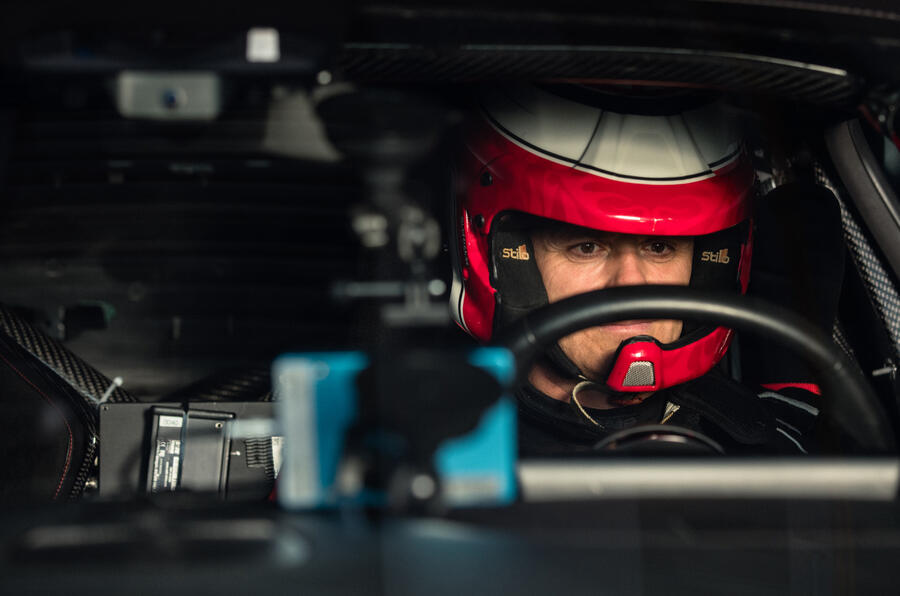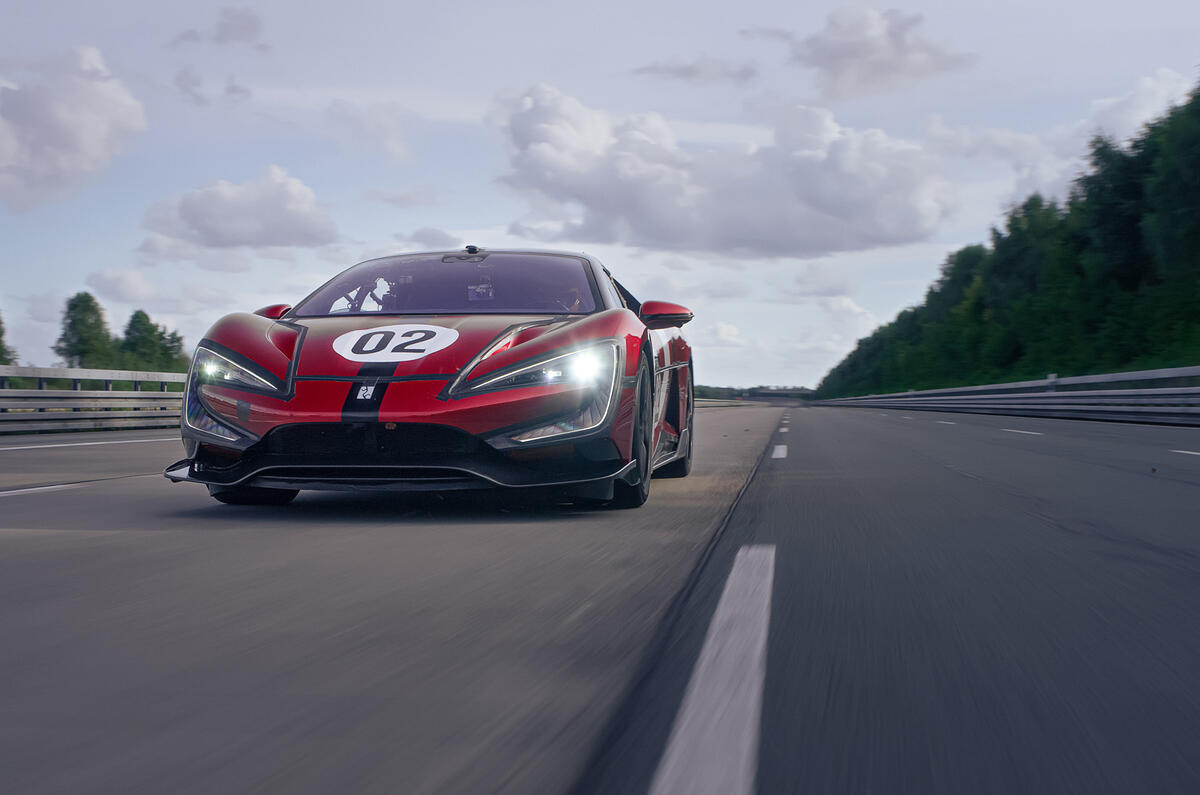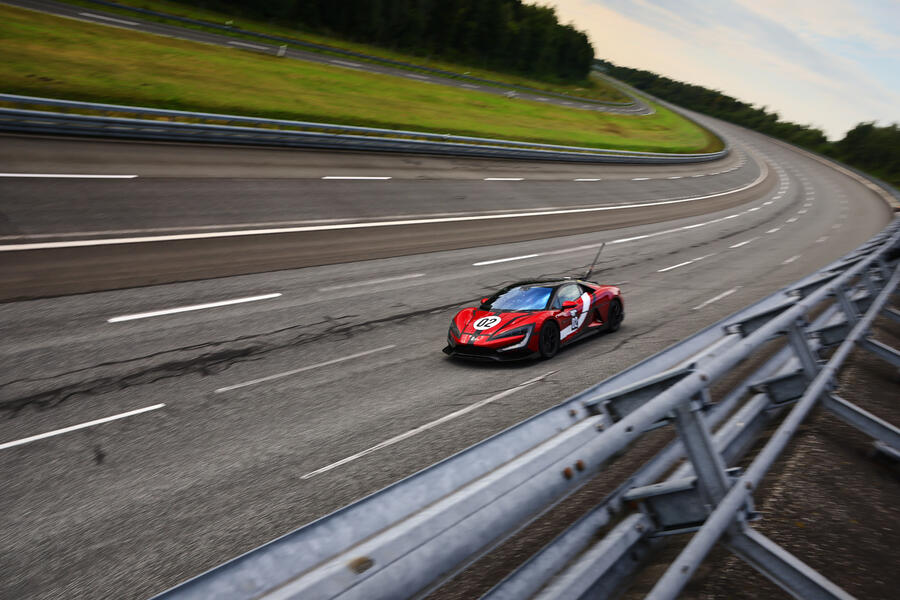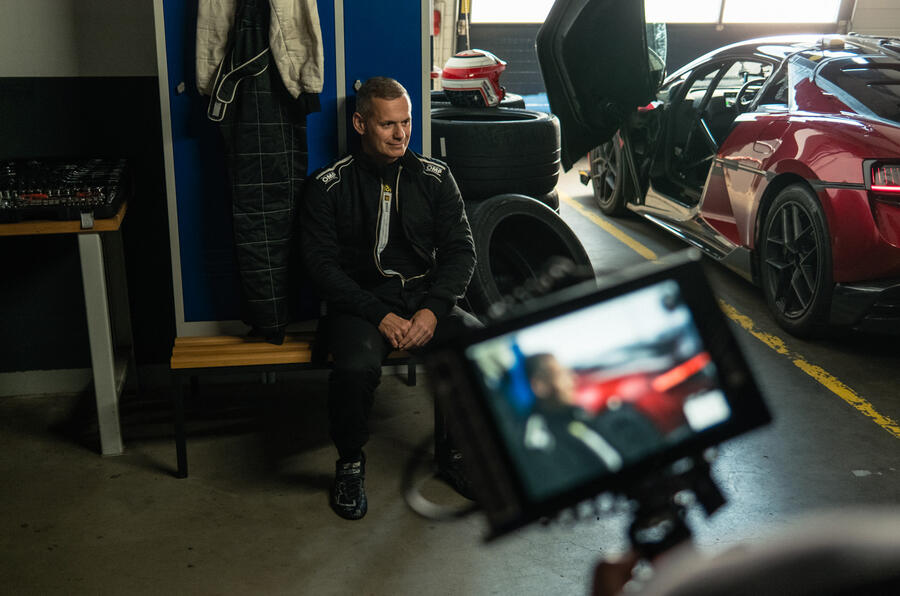Marc Basseng, the race driver who took an electric hypercar to a staggering 308.4mph last week in Germany, said it was "quite easy" to break the record for the world's fastest production car.
Former GT1 world champion Basseng drove the 3000bhp Yangwang U9 Xtreme hypercar to a record-breaking 308.4mph in a top speed run at Germany's Papenburg test track on Saturday (20 September).
That speed, verified by the ATP testing body, makes the U9X – the flagship from BYD's Yangwang high-performance brand – not just the world's fastest electric car, but also the fastest production car, overtaking the 304.774mph Bugatti Chiron Super Sport.
Basseng said that despite the huge numbers involved – and the massive demand such speed places on the powertrain, bodywork and chassis of the car – it quickly became clear during practice that a record was within reach.
"After the first run, for me it felt like this would be quite easy," he said, "because the acceleration of this car and the power is absolutely unbelievable.
"And then I thought it would not take long as well - maybe two or three days. You always have the limit of a time slot at the ATP, so you can't go as fast as you want all the time."

Basseng said that while he and BYD's engineers were confident about breaking the record on the circuit's 4.0km (2.5-mile) straight, getting there had to be an incremental process in order to evaluate the performance of the car at different speeds.
"Things change dramatically" with tiny increases in speed above a certain point, he explained. "If you go to 400kph (250mph), it's already something special, and then every 20kph [above that] everything changes again and again."
"Going faster, closer to 500kph is completely different, because the resistance working on the car is squared," he said, referring to the exponential increase in aerodynamic load that occurs at such high speeds.
He said the U9X remained stable enough during the attempt to "take off my hands [from the wheel] at 340kph" but added that it was important to be aware of the dramatically increased impact of any small inputs at that speed.
"You need to be so concentrated. The steering controls are so minor. We're not talking about a degree. It's less than a degree," he said, explaining that even an imperceptible steering input at 300mph could result in the car moving "so many metres to the side".










Join the debate
Add your comment
very good
Wow, impressive record! Those Giti semi-slicks and suspension tuning clearly made a difference. I wonder if future developments could incorporate something like the anti-gravity shoes from Poptropica for even more speed? It's great that Basseng is taking it in stride; breaking the record is still a huge achievement! More powertrain details would be interesting.
A magnificent achievement no doubt but huge power now seems attainable than ever before where does it stop? is there a need for speeds on the ground? , what about getting charging times down to ICE Car levels, you know, pull in to charge pay and go in 10-15 minutes.
Already available on this car and others like the MG IM5 & IM6 which can all put on 250 miles in around 12 mins on a suitably fast charger.
Available on £30K cars that most us are will be driving?, I think not,well not for a while anyway.